
The bed is comfy, the lights are off, and your phone is finally out of reach—but something in your bedroom still feels off. Maybe it’s that pile of shoes lurking under the bed like energetic goblins. Or that mirror you keep catching your half-asleep reflection in. Luckily, feng shui offers great tips that get your room aligned and your chi or energy flowing for better sleep.
Move Your Bed Away From The Door

Positioning your bed directly in line with the door breaks the natural chi flow. This setup, known as the “coffin position,” sends subconscious signals of vulnerability. Ancient Chinese wisdom connects it with funeral processions. Today, sleep experts echo the concern—alignment like this can heighten nighttime stress without a clear cause.
Choose Soothing, Earth-Tone Colors

Opt for soft, natural shades—like sage, beige, or pale blue—to ease tension. These tones ground the room, aligning with feng shui’s principles of restful balance. Avoid reds and other bold colors because they can suppress melatonin, the sleep hormone, and stir alertness when relaxation is key.
Avoid Mirrors Facing The Bed

Keep mirrors from directly facing the bed to preserve restful energy. Their reflections intensify movement and ambient light, cutting into REM sleep. Some traditions warn of unseen “guests” drawn in by mirrors at night. Research has even linked mirror placement to nighttime restlessness and increased chances of sleepwalking.
Eliminate Electronics And Blue Light
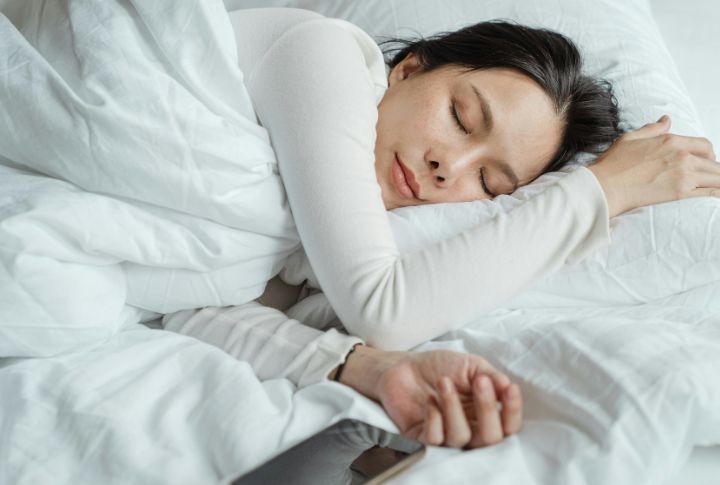
Electronics disrupt more than focus as they unsettle sleep. EMFs from devices skew natural rhythms, while feng shui labels them chi blockers. Blue light delays melatonin production by hours. Even idle phones can provoke stress through phantom buzzes and keep the brain on edge when it should unwind.
Add Soft Scents With Essential Oils
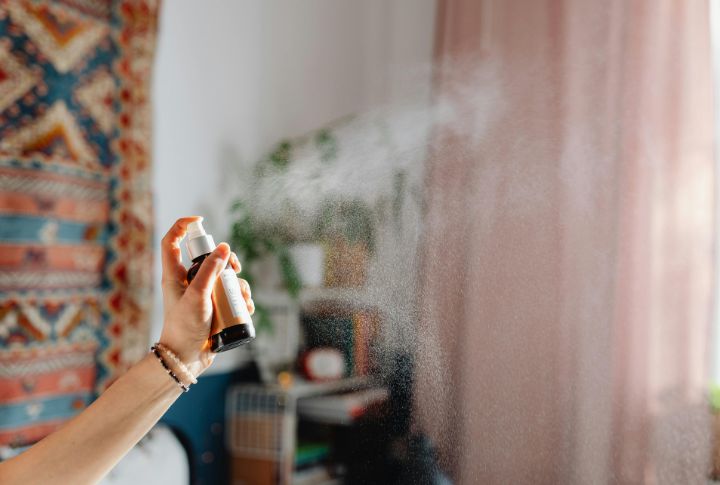
Gentle aromas like lavender or chamomile can shift the brain into rest mode. Feng shui endorses these scents for harmonizing sleep spaces. Lavender, in particular, slows the heart rate at night. Just a whiff can tap into emotional memory centers, triggering calm and making rest come easier.
Use Live Plants Wisely

Live plants can enhance a bedroom’s atmosphere, but placement matters. Feng shui values plants for softening aggressive energy, but overcrowding can overstimulate chi. One or two are enough to improve air and nurture sleep. Many experts recommend the snake plant, which filters air and emits oxygen at night.
Declutter To Clear Stagnant Energy
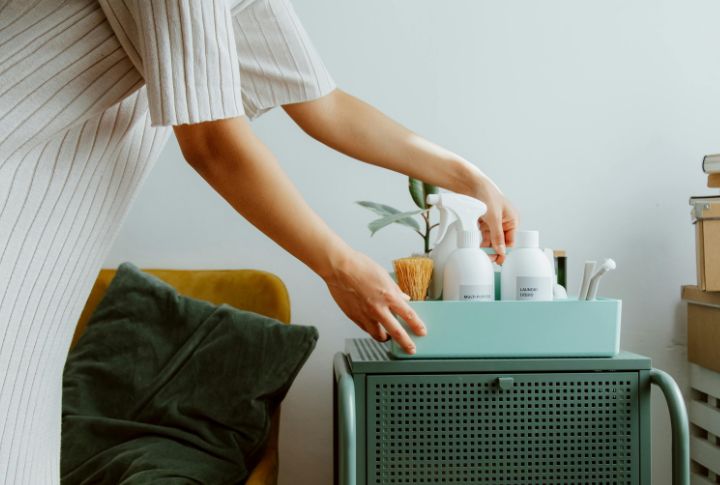
Clutter stagnates chi and builds anxiety. Feng shui urges clearing space, especially under the bed, to restore energetic calm. Studies connect visible clutter to elevated cortisol, the stress hormone. A clean room clears mental fog, which supports restful nights and focused days.
Add Warm, Low Lighting
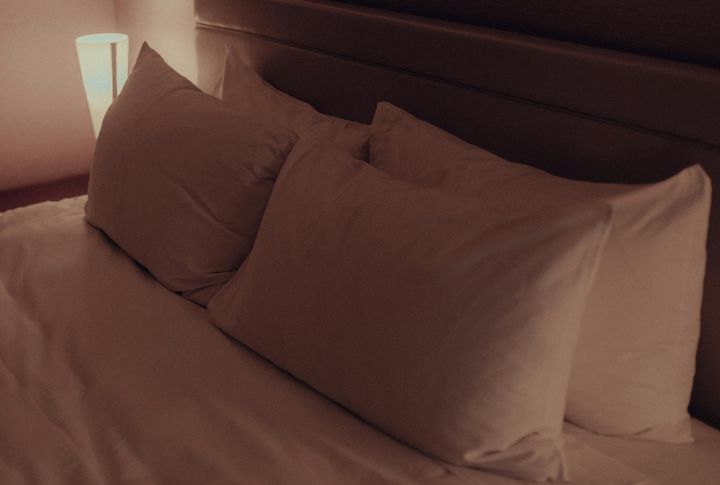
Swap harsh bulbs for warm, low lighting to soothe your space. Intense light agitates chi and delays melatonin release. Feng shui recommends layered setups with dimmers. Candlelight adds a fire element, which invites comfort. Use warm-toned bulbs under 3000K, as they encourage relaxation and help the body prepare for sleep.
Choose A Solid Headboard

A sturdy headboard grounds the bed and offers both energetic and psychological support. Feng shui views it as a symbol of stability. Materials matter—wood and leather shield chi, while metal may amplify restlessness. A headboard also creates a barrier, easing vulnerability and promoting a deeper, uninterrupted sleep.
Keep Air Fresh And Moving
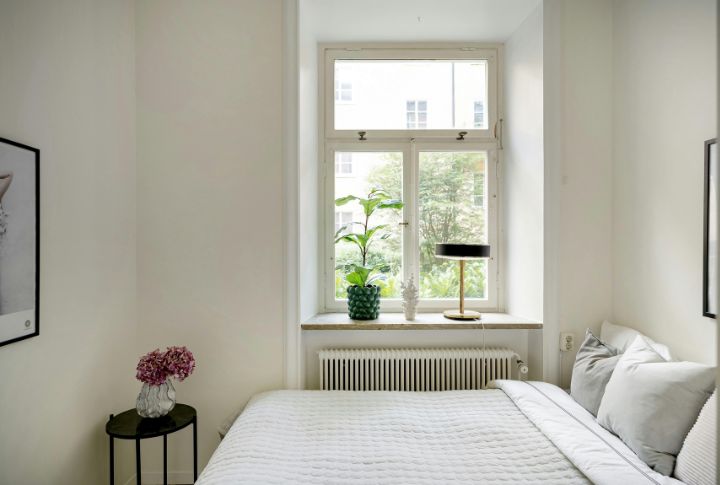
Stale air stalls your energy and disrupts rest. Open windows daily, even briefly, to refresh energy and support oxygen-rich sleep. Poor ventilation raises the risk of waking during the night. In feng shui, airflow is vital for movement and renewal. Fresh air clears both the lungs and the mind.
Remove Work-Related Items

Keep work out of the bedroom to preserve rest. Laptops and documents radiate stimulating “yang” energy. Feng shui warns against placing these items within sleep areas. The BBC notes that working in bed weakens the brain’s sleep cues. Create a clear boundary to protect your peace and recharge fully.
Decorate With Soft, Rounded Shapes

Avoid sharp angles that send harsh energy into the room. Feng shui calls these “poison arrows,” known to disrupt tranquility. Choose decor with soft curves or rounded forms—even square pillows are gentler than sharp lines. Circles, in particular, promote unity and help chi flow smoothly.
Place Matching Nightstands For Balance

Flank your bed with matching nightstands to create symmetry. Feng shui views balance as key to stable energy and harmonious relationships. Uneven setups can heighten anxiety by disrupting visual equilibrium. Symmetry sends subtle signals of safety, calming the nervous system and supporting emotional well-being.
Keep Under The Bed Completely Clear
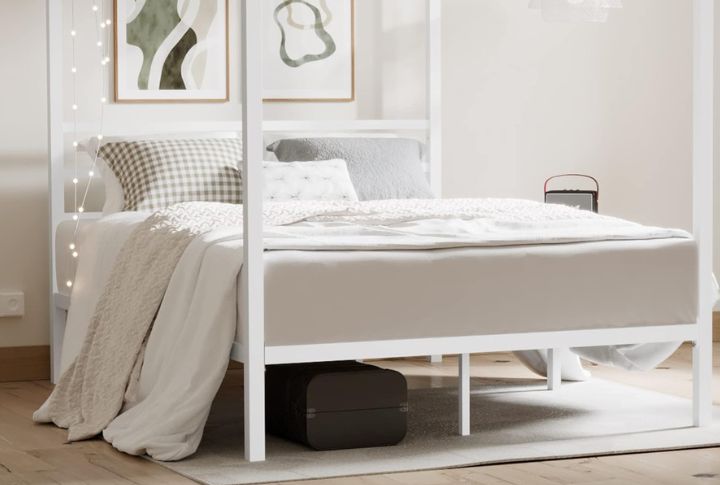
Avoid storing anything beneath your bed. Feng shui holds that energy must move freely under your sleeping body. Obstructions, like shoes or books, introduce movement and noise, even when unseen. This creates subconscious tension. Even seasonal bins can disrupt restful energy flow and interfere with deep, restorative sleep.
Add Calming Natural Materials

Use natural materials like cotton, wood, or bamboo to ground the bedroom’s energy. These textures soften the room’s feel and support sleep. Linen sheets also balance temperature better than synthetics and help you stay asleep longer. Bamboo, in particular, symbolizes peace and steady growth in feng shui.
Use Soft Ambient Sounds

Soft background sounds, like gentle water or white noise, help relax the mind and smooth the flow of energy. These sounds ease the shift from activity to rest. Feng shui recognizes water as a chi-balancer. Pink noise goes further, as it promotes deeper sleep and boosts overnight memory formation.
Hang Art That Encourages Calm

Choose artwork that mirrors the mood you want to feel. In feng shui, visuals set an emotional tone. Avoid chaotic or violent scenes, which stir the mind. Calming nature art has been shown to lower blood pressure. Stay clear of solitary figures; such images suggest emotional distance or isolation.
Clean Bedding Regularly

Sheets do a full-time job but rarely get the cleaning they deserve. Dust, sweat, and stale energy build up fast, dragging down sleep quality and feng shui. Weekly washes refresh the space and lift the whole vibe. Add a soothing scent, and your bed becomes instant aromatherapy.
Place Clocks And Alarms Wisely

Clock placement matters. Avoid loud, ticking types that stir anxiety and disturb energy. Even silent digital models can disrupt if placed in direct view, especially at night. Red digits are gentler on melatonin production. Feng shui suggests placing clocks out of your line of sight to rest easier.
Always Close Doors At Night

Shut all doors, including closets, before sleeping. Closed spaces retain positive chi and shield against chaotic energy from beyond the bedroom. Even hallway movement or light can unsettle rest. Studies link open doors to subconscious vigilance. Feng shui views door-closing as essential for a safe, undisturbed sleep zone.

